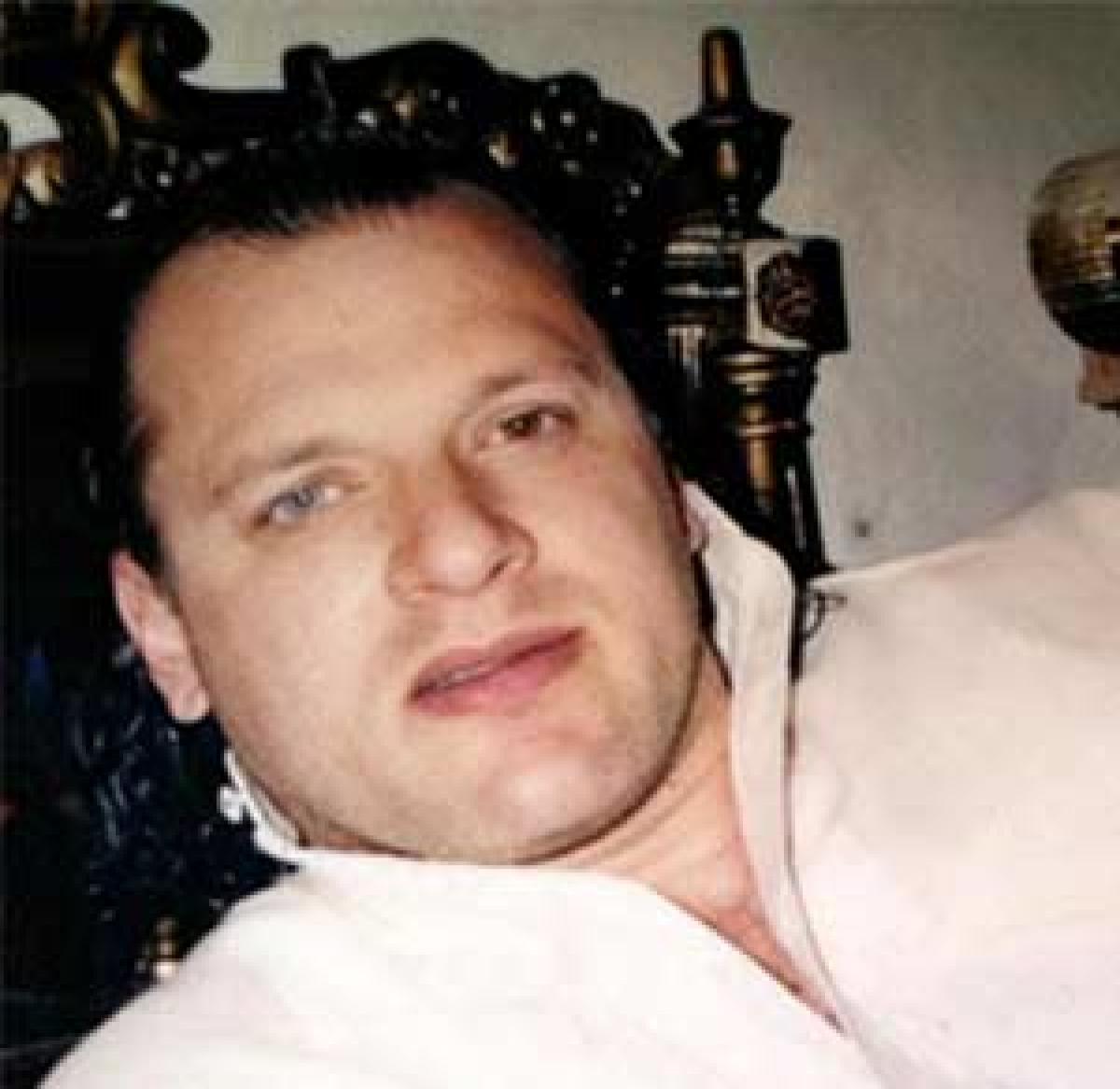Live
- Trump fancies himself a skilled dealmaker, but ME peace might be beyond him
- Six Useful Strategies to Control Your Heart During the Pollution Season
- Phalodi Satta Bazar Predicts Close Race in Maharashtra Assembly Election 2024
- Federer Pays Heartfelt Tribute to Nadal Ahead of His Retirement: "An Epic Career"
- Odisha holds successful mega investors roadshow in Singapore
- PGTI Tour: Top stars to fight for honours in Servo Masters Golf
- SC upholds termination of LIC employee for absenting himself without intimation
- ‘Stone me or shoot me, won’t spare anyone,’ says Anil Deshmukh after discharge
- Siddaramaiah, Shivakumar turning Karnataka into Pakistan: K’taka BJP
- Zimbabwe records 70 suspected cholera cases, one death amid new outbreak
Just In

Considering that any intelligence that David Coleman Headley might supply India will necessarily be exponentially dated, it is hard to make sense of a special court in Mumbai granting a conditional pardon to the key Mumbai terror plotter and even making him a witness for the prosecution.
.jpg) The only plausible explanation behind the Mumbai court’s decision is that the Indian prosecutors are trying to make the best of a bad situation where Headley is a tightly controlled subject by the US authorities, access to whom is very limited. Given his history with the US authorities as an informant and rather complicated entanglement with the terrorist group Lashkar-e-Taiba as well as elements of Pakistani intelligence there has been some reluctance on the US side to expose him to Indian investigators
The only plausible explanation behind the Mumbai court’s decision is that the Indian prosecutors are trying to make the best of a bad situation where Headley is a tightly controlled subject by the US authorities, access to whom is very limited. Given his history with the US authorities as an informant and rather complicated entanglement with the terrorist group Lashkar-e-Taiba as well as elements of Pakistani intelligence there has been some reluctance on the US side to expose him to Indian investigators
Chicago : Considering that any intelligence that David Coleman Headley might supply India will necessarily be exponentially dated, it is hard to make sense of a special court in Mumbai granting a conditional pardon to the key Mumbai terror plotter and even making him a witness for the prosecution.
For Headley’s part though he has once again pulled off a crafty deal to save himself more trouble by agreeing to turn approver for India reportedly in return for disclosing the role played by his handlers from the Pakistani military and intelligence services. However, on the face of it, one cannot say what specifically India stands to gain by granting him such extraordinary accommodation.
The only plausible explanation behind the Mumbai court’s decision is that the Indian prosecutors are trying to make the best of a bad situation where Headley is a tightly controlled subject by the US authorities, access to whom is very limited. Given his history with the US authorities as an informant and rather complicated entanglement with the terrorist group Lashkar-e-Taiba as well as elements of Pakistani intelligence there has been some reluctance on the US side to expose him to Indian investigators.
While his plea deal with the US prosecutors requires him to co-operate with India and other foreign agencies to the fullest possible extent, it is a matter of speculation how much he is really permitted to reveal. Anything that he might have to say about his relationship with Pakistani intelligence or any other official agency is now a good seven to nine years old.
He was arrested in October 2009 from Chicago’s O’Hare International Airport just as he was about to leave the country. Effectively, he has been out of any direct touch with any of his Pakistani contacts since his arrest. He is known to have shared all the intelligence and information that he possessed about the November 26, 2008 Mumbai attacks with the US investigators.
He was also extensively interrogated by Indian investigators in June 2010 during which the US Department of Justice had maintained that "There were no restrictions on the questions posed by Indian investigators.” That being the case, coupled with the datedness of his information, the Indian conditional pardon is intriguing.
His 2010 plea deal was incumbent upon the quality of information that he would provide to the US authorities. Subsequently, even at the time of his sentencing in January, 2013, both the prosecution and defense repeatedly and greatly emphasised the extent and quality of his cooperation. His attorney said that because of the information provided by Headley barely 30 minutes after his arrest, lives were saved not just in India and the United States but elsewhere in the world.
Unless there has been some behind-the-scenes deal-making between the Indian and the American investigators over some still crucial bits of information that Headley will reveal, there does not seem to be anything significant to be gained by extending him such remarkable accommodation yet again.
It had baffled many then why a man once so deeply immersed in an extreme version of Islam known as Salafism could change so radically as to seriously undermine its other adherents by exposing them. One plausible explanation could be what even Judge Harry Leinenweber zeroed in on.
He had pointed out how Headley had a history of being arrested and then finding his way out of it by cooperating with the authorities. He was referring to Headley's two arrests in the past in connection with narcotics smuggling and how he managed to come out of prison on fairly positive terms in exchange for cooperation.
His plea deal to escape the death penalty and extradition to India was yet another deal that he struck. Now with the Indian deal, Headley has yet again excelled at finding a way out of a potentially terrible situation.
By Mayank Chhaya

© 2024 Hyderabad Media House Limited/The Hans India. All rights reserved. Powered by hocalwire.com







